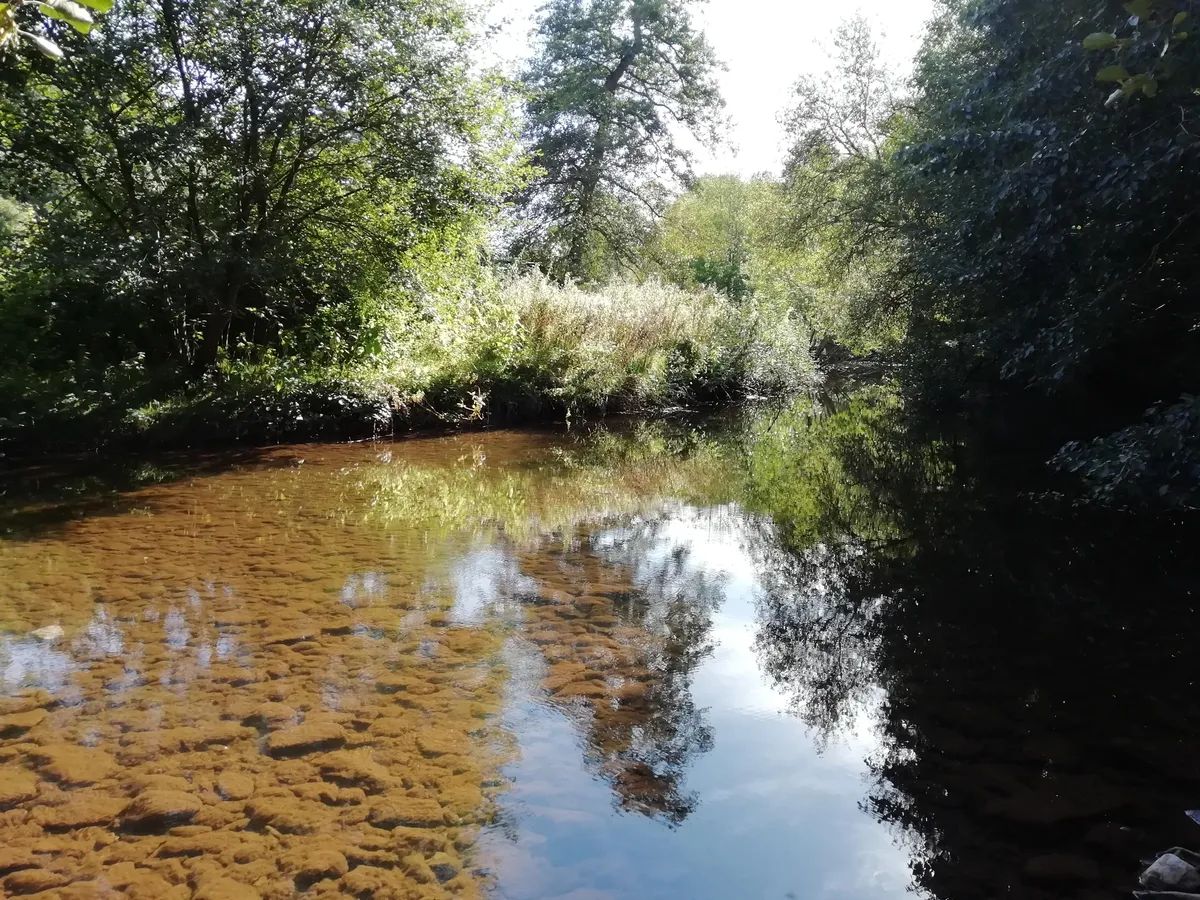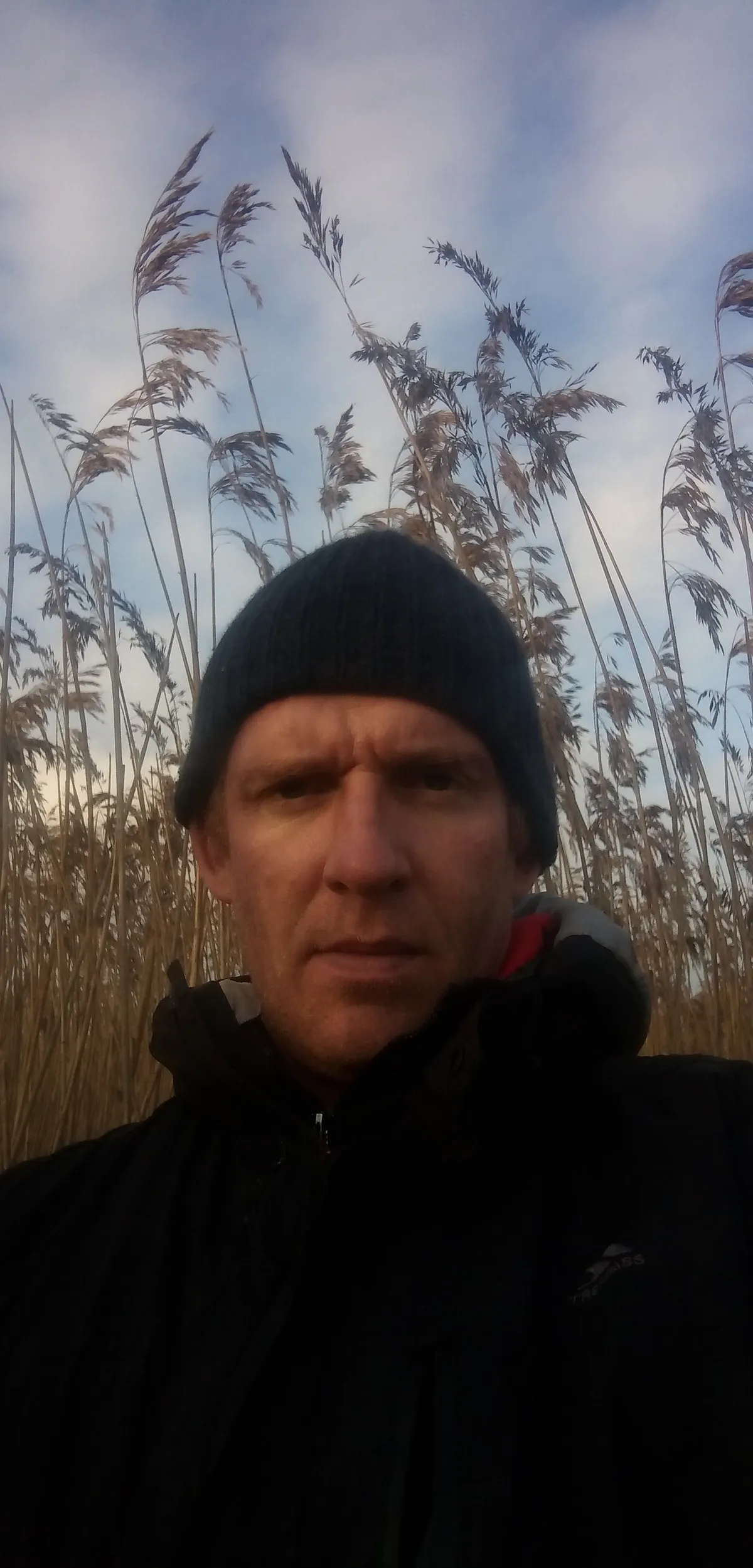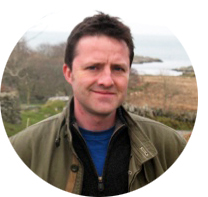The loss of tens of thousands of fish and uncounted other aquatic life on the Afon Llynfi in July has angered the local community, anglers, visitors and even farmers. Natural Resources Wales are tasked with investigating the pollution so, as part of BBC Countryfile Magazine’s continuing focus on this story, I invited a member of NRW to visit the Llynfi with me and talk about how the investigation works and what the chances are for a prosecution.

It’s late September when I meet Dav Letellier, South East Wales Operations Manager for NRW, in the small town of Talgarth, which lies close to the course of the Llynfi. Letellier is from Normandy but has lived in Britain for 20 years and has a gentle French/Welsh accent. As we wander along stream called the Afon Ennig, a tributary of the Llynfi, he tells me why he is involved in the story.

Letellier was on call the night the pollution was first reported to the NRW hotline . He has brought the previously unpublished incident report with him, which he reads to me.
“On 31 July at 18.25, we got a phone call from a member of the public reporting “horrible white froth coming down the river Llynfi, noticeable at the point where it passes the bottom of their garden. No odour but they can see a big brown fish thrashing around in distress and one more fish upside down, dead. Unsure if there's more.”
“So,” Letellier tells me, “we categorised this as high priority. Whenever there are dead fish, it is high priority. I got my incident manager to call the witness back at 18.44 who reported…” he continues from the incident report: “she describes bubbles on the surface, almost like bubble bath. And that she saw one fish in distress, she could see crayfish trying to get out of the water. There were a lot of young fish on the surface, the pollutants seem to be coming down a channel where the flow is. She’s not seeing anything like this before and describe the water as cloudy. And that there was a bleach-like smell evident.”
I ask Letellier why no one from NRW came on site until 13 hours after the incident was first reported – 8am the following day. It has been a major criticism aimed at NRW by local angling groups.
He explains that it was a safety issue. “That Friday [31 July] had been a perfect storm, we had another fishkill and a pollution incident on the go elsewhere [the Rhymney and the Ebbw respectively]. So we only had one person who was rested enough to actually get to site and they were two hours away. So they would have got on site at about 9pm. And that's when the sun set. In my role, I'm responsible for the health and safety and well being of our staff. I didn't feel comfortable with having someone doing an investigation around a stretch of water they didn't know, at night, all night, and being able to do it safely. So although we discussed at length that we wanted to send someone to site straight away, I decided that from a Health and Safety perspective, it was safer to do it the next day.”
Some anglers and local people have reported taking samples of the polluted water at the time of the incident. I ask Letellier whether these samples are being used in the investigation.
“I believe we have taken them and they have been analysed, but I don't know if we can use them as evidence because obviously to take samples, there are protocols, you have to have certain training and standards that will stand up in court.” So for a water-tight case, NRW needed to take the samples. Letellier admits that the delay in taking the samples could impact on the chances of an effective prosecution. The first samples taken by NRW on Saturday 1 August were couriered to NRW’s laboratory in Swansea for analysis.
I ask about resourcing at NRW. Letellier explains that Monday to Friday there is a full investigation team but only a “skeleton team” at weekends. I joke – but it’s not funny – that polluters perhaps know that weekends are the best time to get away with their dirty work. Dav agrees. He explains that “since austerity measures, we've had less funding too and our responsibilities haven't diminished.” One key problem is a loss of experience. In essence, Letellier tells me that a lot of people with 20-30 years’ experience have left NRW over the last 7 years – taking voluntary redundancy – and have been replaced with new, hardworking and dedicated but ultimately less experienced people. If he’d had an old timer to send out on the Friday night, it would have been a different story.
Letellier and I walk north along a heavily silted and apparently fishless Afon Ennig to its confluence with the Llynfi near Bronllys Castle ruins just north of Talgarth. A discreet public footpath runs downstream along the north bank of the Llynfi and we set off to explore this part of the river. As I glimpse the water through the trees, I notice fish rising. We sit by a small set of rapids – there is plentiful fly life, small fish in the shallows and grey wagtails. It’s a healthy river… at this point.
Letellier explains that the pollution incident began further downstream. Letellier explains how they know this: “On the Sunday, we carried out an invertebrate study. We go upstream, we do a count. Then we go down the river and do those counts. And there's a moment when you know that you can see an impact. You go from insects to no insects. This is part of the evidence collected in the investigation.”
By Monday 3 August, NRW had a full investigation team on site collecting further evidence, interviewing local people and landowners and helping build a better picture of what happened. Letellier clarifies that by this time, it was clear that 10,000 plus fish had died.
So what happens next and who is to blame?
"An investigation has been ongoing, and I’m expecting it will conclude within days rather than weeks," Letellier says. "The results of the investigation will then go past a group of Legal and Environmental experts within NRW who will decide the next course of action. I don’t know the detail of the investigation, but even if I did, I wouldn’t be able to say anything now, not to jeopardise anything.
"I really want this to be successful, but in an ideal world, this type of incident shouldn’t happen at all. We talked about reducing resources and loss of experience earlier, but one of the things that perhaps we don’t do as much as we used to is prevention. I’d like us to do more pollution prevention work, do more visits, give more advice, work more with the local public and local organisations."

